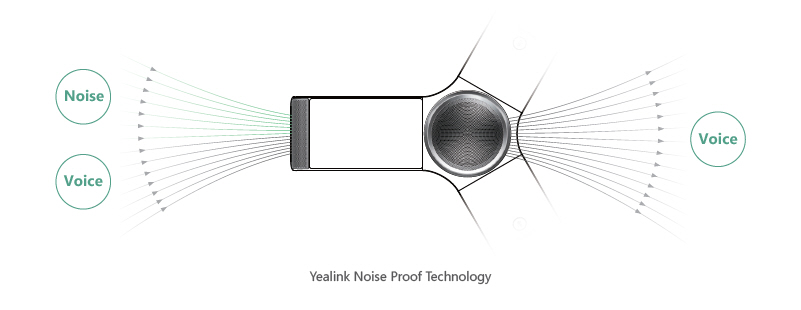Introduction: The Rise of VoIP in Business Communication
In today's hyper-connected world, the way businesses communicate has evolved dramatically. With the advent of Voice over Internet Protocol (VoIP) technology, small businesses have been able to leverage affordable and flexible communication solutions. But with great power comes great responsibility. As small business owners embrace VoIP phone systems, the importance of understanding the security essentials cannot be overstated.
Many small business owners might ask: “What exactly do I need to know about VoIP security?” This article will delve into the essential aspects of VoIP security that every small business owner should be aware of, ensuring your communications are not only efficient but also secure.
VoIP Security Essentials Every Small Business Owner Should Know
In this section, we will outline critical elements of VoIP security that are indispensable for safeguarding your business communications. Understanding these essentials will help you protect sensitive information and maintain the integrity of your communication channels.
1. Understanding VoIP Technology: The Basics
Before delving into security measures, it’s crucial to grasp what a VoIP phone system is. At its core, a VoIP phone system converts voice signals into digital data packets, transmitted over the internet rather than traditional telephone lines. This transition offers numerous benefits including cost savings, flexibility, and advanced features such as call forwarding and voicemail-to-email.
1.1 Advantages of VoIP Phone Systems
- Cost Efficiency: Significantly lower operational costs compared to traditional telephony. Scalability: Easily add or remove lines based on your business needs. Advanced Features: Enjoy functionalities like video conferencing and virtual assistants.
2. Common Security Threats to VoIP Phone Systems
As with any technology, there are potential threats that can compromise the integrity of your VoIP phone systems. Awareness is your first line of defense.
2.1 Eavesdropping
Eavesdropping occurs when unauthorized individuals listen in on a conversation. This can result in sensitive information being leaked.
2.2 Denial-of-Service (DoS) Attacks
A DoS attack aims to render your communication services unavailable by overwhelming them with traffic.
2.3 Phishing Attacks
Phishing involves tricking users into revealing personal information through fraudulent emails or phone calls posing as legitimate sources.
3. Implementing Strong Authentication Measures
One effective way to enhance your VoIP security is by implementing strong authentication measures.
3.1 Use Complex Passwords
Always use complex passwords for all devices connected to your VoIP system and update them regularly.
3.2 Multi-Factor Authentication (MFA)
Employ MFA wherever possible to add an extra layer of security beyond just passwords.
4. Regular Software Updates and Patches
Keeping your software updated is paramount in protecting against vulnerabilities that could be exploited by attackers.
4.1 Importance of Updates
Software updates often contain patches for known vulnerabilities; failing to apply these can leave you exposed.
5. Secure Your Network Infrastructure
Your network infrastructure forms the backbone of your http://jaredeqen260.bearsfanteamshop.com/voip-phone-systems-101-how-to-make-an-informed-decision communication system; hence securing it is imperative.
5.1 Use Firewalls
A robust firewall can help filter out malicious traffic before it reaches your internal network.
5.2 Configure Routers Properly
Ensure routers are configured correctly with strong encryption protocols like WPA3 for Wi-Fi networks.
6. Utilizing Encryption Techniques
Encryption acts as a safeguard for both voice data and signaling data transmitted over the internet.
6.1 End-to-End Encryption
Consider using end-to-end encryption so that only intended recipients can access the audio content during calls.
7. Monitoring and Logging Activities
Regularly monitor call logs and network activities for any suspicious behavior or anomalies that could indicate a breach attempt.
7.1 Intrusion Detection Systems (IDS)
Implement IDS solutions that alert you instantly if any unauthorized access attempts occur within your network infrastructure.
8. Training Employees on Security Best Practices
Empowering employees with knowledge about potential threats significantly reduces risk factors associated with human error.
8.1 Conduct Regular Training Sessions
Organize training sessions focused on recognizing phishing attempts, secure password practices, and safe handling procedures for sensitive information.

9. Choosing a Reliable VoIP Provider
When selecting a provider for your VoIP phone systems, ensure they prioritize security alongside performance metrics like uptime reliability and customer service responsiveness.
FAQs About VoIP Security
Q1: What are some symptoms indicating my VoIP system may be compromised?
A: Unexplained charges on bills, poor call quality, or frequent disconnections may indicate issues such as hacking attempts or service disruption caused by attacks like DoS.
Q2: How often should I update my passwords for my VoIP accounts?
A: It’s best practice to update passwords every three months or immediately following any suspected breach activity or employee turnover involving access credentials.
Q3: Is encryption necessary for all types of communications?
A: While not mandatory for every interaction, encrypting sensitive conversations—especially those involving financial transactions—significantly enhances confidentiality and integrity during transmission.
Q4: Can I use my existing hardware with a new VoIP provider?
A: Most modern phones support SIP (Session Initiation Protocol), making them compatible with many providers; however, it's vital to verify compatibility beforehand to avoid unexpected issues during migration processes between different platforms or technologies used by various providers globally today!
Q5: What regulations should I consider regarding data privacy when using a VoIP service?
A: Depending on where you operate your business, you’ll need to comply with regulations such as GDPR in Europe or CCPA in California related specifically towards data protection practices concerning customer information collected through electronic means including Voice-over-IP services utilized across different regions worldwide!

Q6: How do I assess if my current provider adheres adequately towards compliance requirements set forth by relevant authorities governing telecommunications within my jurisdiction?

Conclusion
In conclusion, navigating through the complexities of maintaining a secure environment around your VoIP phone systems requires diligence but pays off significantly in enhancing communication reliability while safeguarding sensitive data from potential breaches!
By understanding "VoIP Security Essentials Every Small Business Owner Should Know," implementing robust security measures tailored specifically towards addressing unique challenges posed within this technological landscape ensures sustained growth alongside peace-of-mind knowing everything from critical conversations held close-by remains uncompromised regardless external threats lurking just outside reach!